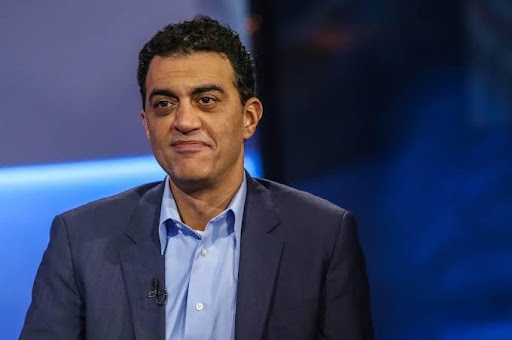On Oct. 24, tech investor Emil Michael joined Harry Stebbings’ “The 20 Minute VC” podcast where the duo discussed everything from the earliest days of Michael’s career to the dynamics behind the entrepreneur’s multibillion-dollar dealmaking.
“I went to college and graduated in 1994, which if you remember the time there, that was the very beginning of the internet businesses starting to come out. In my same class at Harvard, Hadi Partovi, Ali Partovi, David Weiden from Khosla Ventures, Alfred Lin, Tony Hsieh, all graduated the same year. All of us sort of decided, ‘Hey, well, this thing is happening in the economy. We can go do an investment banking job, a consulting job, or figure out what this tech thing was all about.”
Emil Michael said he then found himself moving to California and attending Stanford Law School and admitted if he could get a do-over, he would’ve dived straight into Silicon Valley instead of taking a detour to law school.
“Hadi Partovi, who runs code.org now, was co-founding a company called Tellme Networks,” Emil Michael recalled. “Ali Partovi was founding the internet LinkExchange with Alfred Lin and Tony Hsieh. And so I was working in both, and it was at the very beginning of the new internet entrepreneurs. We were feeling around for something important in the internet in 1994 through 1998.”
Reflecting on Finding a Mentor
Emil Michael also reflected upon meeting Silicon Valley business coach Bill Campbell as a career catalyst for success.
“When I got to the Valley, Bill Campbell was associated with Kleiner Perkins, and Kleiner Perkins back in that day was the [venture capital] firm to be associated with. They did Amazon, Google. John Doerr was the man,” he explains. “What he touched turned to gold, and he was buddies with Bill Campbell. He invested in Tellme. Bill took a liking to me when I was 25, and he became my mentor. He’s the one who sort of propelled the future startups. He’s the one who propelled me working at the White House for Secretary [of Defense] Robert Gates. The education stuff didn’t propel me for much of it except meeting the guys; Hadi, Ali, David, Alfred. So those are the influences I’d say that got me there.”
Working at Tellme was where Emil Michael said he originally got his grit.
”We started Tellme in 1999. So if you think about the timing of that, we were, unbeknownst to us, 18 months from the world coming to an end from a technology investment standpoint,” Emil Michael says. “So, we had raised $150 million, which was a lot of money in the late ’90s. I think [it was] more than [Amazon’s Jeff] Bezos raised in his first couple rounds. And then the business model didn’t work, and the internet economy blew up. We had scaled to 300 people, so we went down down to 100.”
Emil Michael said they attempted to reconfigure what was a consumer model to an enterprise model. He said Tellme Networks built enterprise systems at Fidelity, American Express, American Airlines, and other brands where clients could speak their name into the phone utilizing a phone tree voice-command system for service.
They built the business model for seven years, Emil Michael continued, and landed over $100 million in revenue. In 2007, he was working on selling it to Microsoft, to be what has become the base of its speech recognition technology today.
However, Michael recalled a bit of a plot twist getting thrown into the mix when Tellme received a lowball offer to buy the company.
Emil Michael said they had gotten an acquisition for approximately $300 million, but wisdom from Campbell prompted him to take a risk and create a competition for the company to drive the price even higher.
“I begged Hadi for one hour with Steve Ballmer at Microsoft,” said Michael, who added that Hadi Partovi was a jogging partner of Ballmer’s. “Everyone thought I was crazy. So I flew up to Seattle to see Steve Ballmer.”
Emil Michael secured the meeting and Ballmer purposely poured water on his BlackBerry, because it wasn’t a Windows OS phone. Despite ruining Michael’s phone, Ballmer took a liking to him and invited him to stay the weekend to seal the deal.
“By the end of the weekend, three days later, I had a term sheet for $760 million plus the cash in the balance sheet, so just about $800 million, and that was it,” Emil Michael said. “It was sort of like having the gumption to go there and not relent until we got that deal.”
Sheer Determination
Michael said sheer determination to land the deal regardless of any obstacles was his main motivation. When it comes to dealmaking, Emil Michael advised ditching the negotiation books and classes.
“No. 1 thing in negotiations is to outwork whoever you’re negotiating with,” Emil Michael said. “That means, when I know I’m negotiating with you, I try to know everything about you, before I get to that meeting. [I know] everything about your company, your industry — if you’re having a rough quarter, your org chart, what your financial outcomes are looking to be like. How do you get promoted? How do you get fired? And everything around that, because it brings the human dynamic and the real-world dynamic into a negotiation.”
Emil Michael said framework No. 2 for making a deal is, “The less information you give and the more you get, the better. Information is power, and people don’t realize that enough, that the more you learn the better you’re going to be at these things, even about your own company.”
Emil Michael also described himself as a “shock absorber” when it comes to the delicate dance of dealmaking.
“I can absorb the shock of someone else’s emotions on my side, on their side, and kind of be OK with that,” Emil Michael said. “I’m like, ‘Hey, this person’s having a moment. I’m going to go take a drink, or let them yell and scream.’ And then I’ll say, ‘Are you done yet? Because when you’re done, we can start again whenever.’ So depending on the context, I never get emotional back and that gives me power. If you can be a shock absorber to emotion in negotiations, that’s a winning strategy in general, in my view.”






